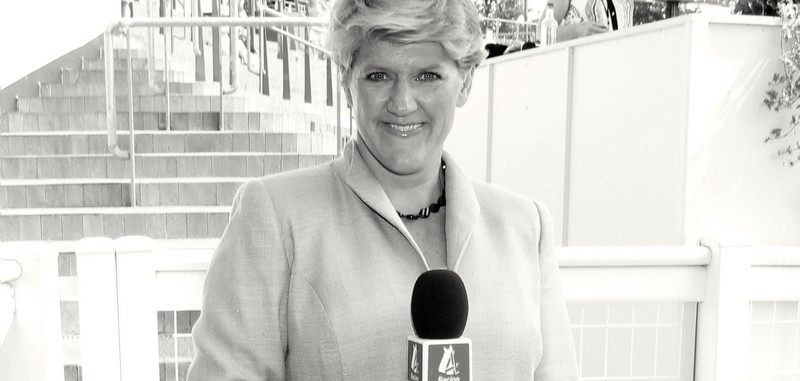
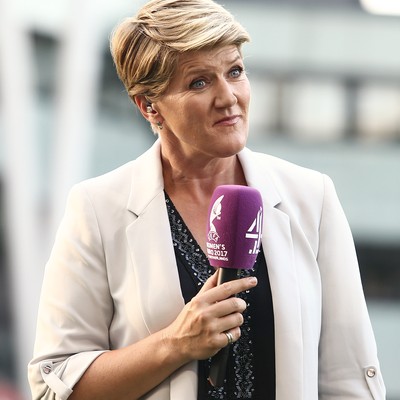
Chapters In My Life: Clare Balding
Chapter One
Thinking I Was A Dog
“I grew up in Kingsclere in Hampshire with my parents and younger brother Andrew. My father was a racehorse trainer and trained several of the Queen’s horses. Most of my childhood was spent surrounded by dogs. My parents adored their dogs – they were definitely higher in the family pecking order than us kids – so I thought it was sensible to be a dog because that way you got some attention. I took it quite a long way and tried to sleep in their bed and drink from their water bowl and wag my tail. Luckily, I didn’t much like their food! I still do think there is quite a lot to learn from the attitude of dogs – and kids too – in that, essentially, the things that matter are food, sleep, love and play. As adults, we forget that those are the four cornerstones and that if you wag your tail when you see somebody it’s no bad thing. We always had lurchers and boxers – my mother used to say that, if you grow up thinking a boxer has a beautiful face, the world will be a beautiful place. I think that’s true too.
“We had a happy and fun childhood. It was wild and rural, and we were constantly riding and falling off – trying, in fact, to fall off a hundred times as that is what dad said we had to do to be proper jockeys. I went to the local primary school and then, when I was ten, I sat Common Entrance and went to board at Downe House – and that was a struggle.”
Chapter Two:
Galloping Free
“I can’t remember learning to ride because I was sat on a pony when I was 18 months old. Although dad trained racing horses and there were about a hundred horses on the premises, that was separate, that was his business, his work. But Andrew and I always had a pony on the go, nothing very smart or posh, just whatever bargain basement we could find or get gifted. I started off riding a Shetland pony, then a little Welsh Mountain and then on and on, and all I wanted to do was ride. I look back at my diaries now and they’re all about ponies and horses and how many times I rode, how many times I jumped and where I went. In many ways, my formative years – learning to form a relationship with another living being – were spent riding.
“I loved the feeling that there was something on this planet I could do well. Riding also had that sense of freedom and the adrenalin rush of doing something that was slightly dangerous, like jumping things that were a bit bigger than you might consider normally. It was just fun, really fun. I didn’t really get too many broken bones or bad accidents apart from breaking my collar bone when I was very little and concussion when I started riding in races. Admittedly, it’s not a very transferable skill but it gives you that sense of confidence that I try to transfer into other things – if I can feel how I felt on a horse in other situations, I can stay calm under pressure and, if I can let myself go with the flow of things, I can cope with anything. Certainly, it helped at school. When things were going wrong, I used to say to myself, at least you can ride.”
Chapter Three
Getting Into Trouble
“I was not very academic early on and I struggled at school, mainly because I was very young for my year – at least a year younger than everyone else – and I got into a lot of trouble. At the beginning of my second year at Downe House, I got suspended for shoplifting – it was tough knowing what it feels like to be shunned and shut out, and then you respond to peer pressure by doing things you know you shouldn’t do because you think it will make you look cool. With the benefit of hindsight, that shame and the struggle to fit in has really helped but, at the time, it didn’t help at all of course – I was desperate.”
Chapter Four:
Finding My Feet
“After O levels, we went on an outward-bound course and that changed everything – just everything. I had an instructor who didn’t know me, didn’t know my history, didn’t know anything about me. We were placed in groups alphabetically, so I was with other girls who were not necessarily in my circle of friends who I didn’t really know that well, even though I’d been at school with them for ages. That was really good. In that situation, you learn how to help other people and in doing so that helps you. I think that has been a useful thing for me.
“Coming through that and getting a good report from the course, I was made head of house and then head girl, which was really a case of an outsider winning the race. I went back to Downe House to do a talk about ten years after I left – there is my name on the board as head girl and everyone knows I went to Cambridge, and the girls all thought I must have been the model student. I started by talking about getting suspended and you should have heard the gasps in the room – even the teachers who had known me didn’t think I would ever talk about that!”
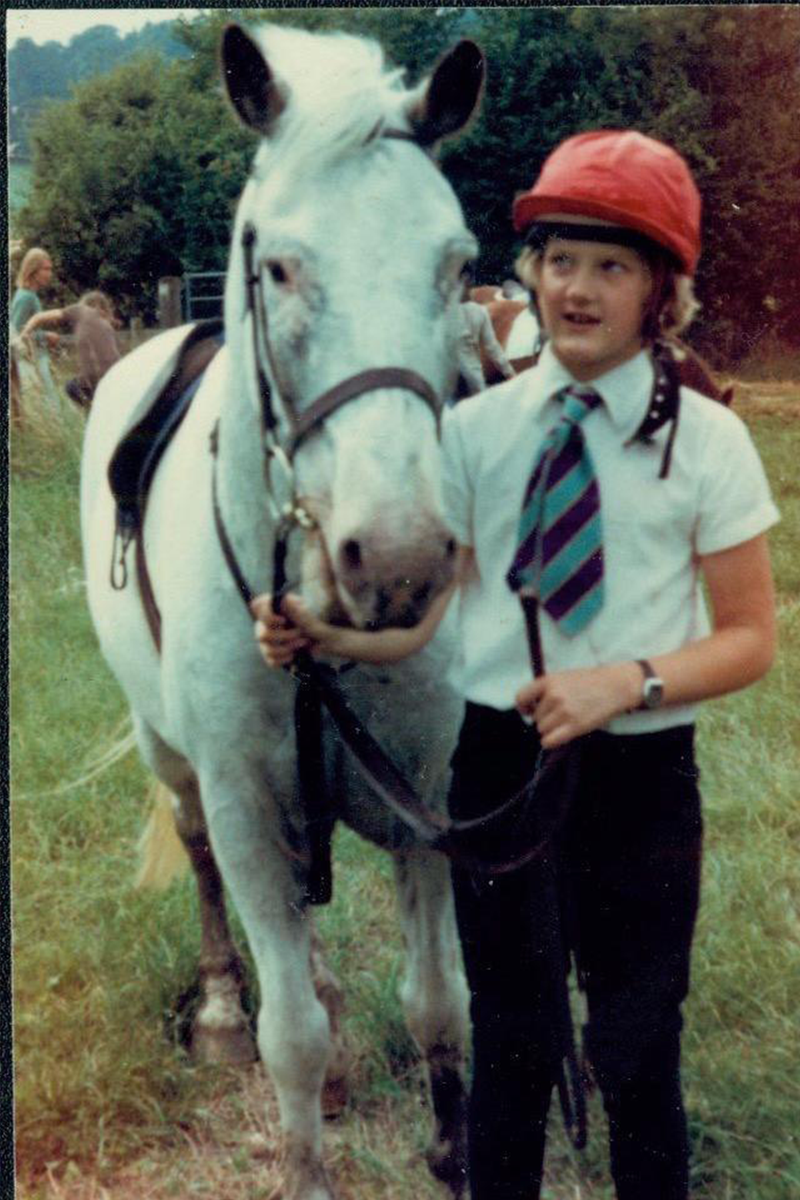
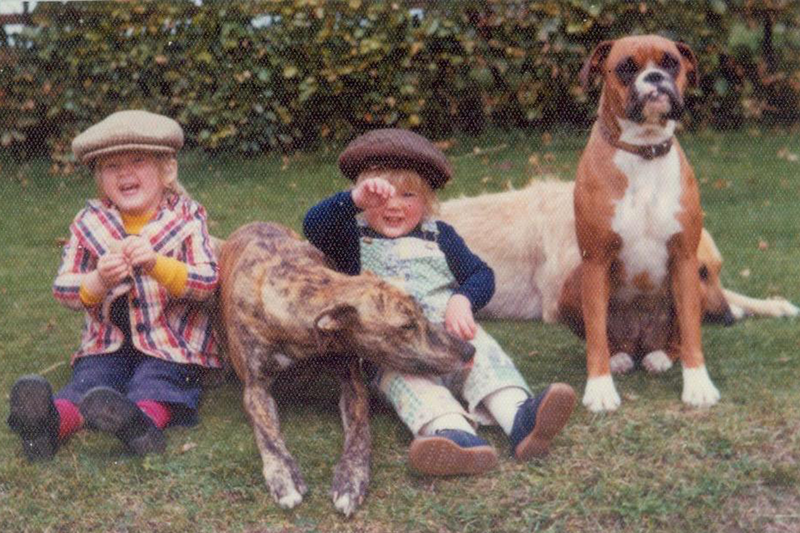
Chapter Five
The Cambridge Years
“Getting into Cambridge was a struggle too; it didn’t happen the first time or the second. But I got in on my third application – that was a triumph of persistence and bloody mindedness, I think. I read English, though my earlier applications had to been to do law. English was definitely more my thing and I loved it. When I got there, for the first time I was actually in my year group age-wise – I was no longer the smallest, the youngest, the lowest in the pecking order, which gave me the chance to recalibrate. Not that I needed to be at the top, but it was just quite nice not to consistently be the one who had to catch up.
“I loved Cambridge, even though I didn’t think I would fit in at first – but then everyone thinks that. Within three weeks, you’re doing things you never thought you’d do. I loved being challenged academically, but it’s all the other stuff that goes with it – I learned to row and rowed for my college, Newnham. I tried out lots of different things like debating and ended up being president of the union. I loved Newnham – the great thing about the college is that you are allowed to walk on the grass, literally and metaphorically. At nearly every other college there are notices saying ‘keep off the grass’ but at Newnham, they really believed the college was for the students, it wasn’t for anyone else, not for show or for tourists. It’s a very special place, off the beaten track too, which is nice.”
Chapter Six
Early Days At The BBC
“Pretty soon after I left uni, and quite by chance, an opportunity came up to do the early morning racing bulletins for Radio 5 – not on a permanent basis just a couple of mornings a week. They needed someone who would get up early and who knew a bit about racing. I was offered a job in advertising which I was going to take because I couldn’t afford to live in London on the money I was being paid to do the racing bulletins. I had no job security and I didn’t want to live at home for ever – what’s more, I liked the idea of working in advertising because it seemed exciting and creative, and connected to the media. When I told the BBC I was leaving because I’d been offered a fantastic job at Rank Screen Advertising, my boss Bob Shennan called me in and told me I couldn’t take the job. He told me they were going to design a programme around me. He said: ‘I want you to be the voice on this station we’re setting up, called Five Live. I want you to report on and present every sport, and we’re going to set up a trainee programme for you.’ That was great and I was a trainee for a year going on all sorts of courses, and then I got to go to my first Olympic Games in Atlanta in 1996, reporting on equestrian events. It all took off from there.
“I was also writing all the way along – for the Sporting Life and Racing Post. But I also wanted to get away from racing a bit – I didn’t want to be my father’s daughter and didn’t want that to be the reason I was getting work. I wanted a voice in my own right and I was very lucky to get a column in the Evening Standard – its sports editor Simon Greenberg believed I had something to say and gave me a platform. Writing a column for a paper teaches you a lot: you have to form a style that is your own, but also obey the rules and deliver on time to an accurate word count. The same applies to radio and TV, of course – you talk to time and shut up when you’re told to. And you try and do something a little different, try and rethink things, have a viewpoint that is yours without being controversial for the sake of it, and not just churn it out. That takes time and you can’t do that straightaway in your 20s, and I dread to think what some of my early pieces were like. I also wrote for the Observer – it always helped for me to write as well as broadcast because I would research subjects that I wasn’t necessarily covering on TV and radio, and got the chance to do things in more depth. I also realised how much I liked interviewing people.”
Chapter Seven
Meeting Alice
“The broadcaster Alice [Arnold] and I met in about 2000 but we didn’t actually get together until 2002. At the time, she was working for Radio 4 as a news reader, a continuity announcer and doing the shipping forecasts. But she has a background in musical theatre and acting, and now she works for Mellow Magic and does a show for them on Saturday and Sunday mornings. She also presents the Olivier awards and interviews a lot of musical theatre stars. We had a civil partnership ceremony in 2006 but vowed to return and get married again when gay marriage became legal in the UK. We actually got married in 2015, but it gets backdated to 2006.”
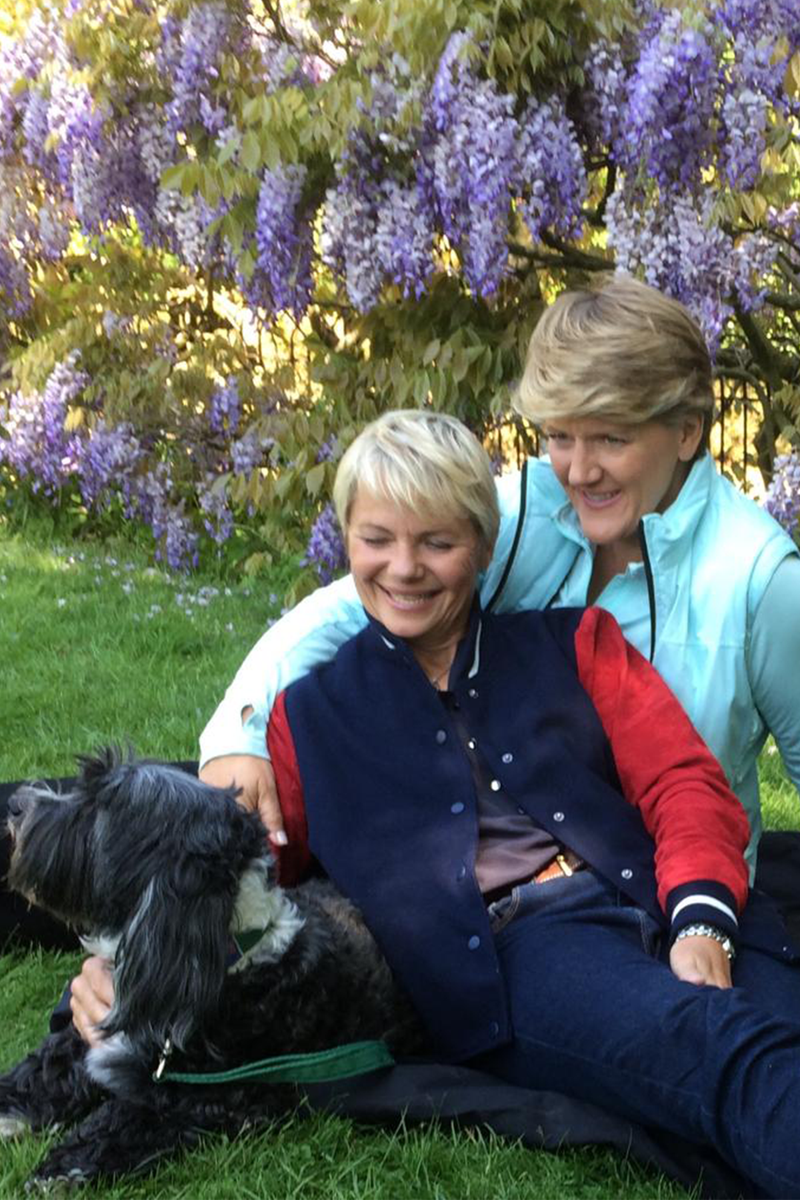
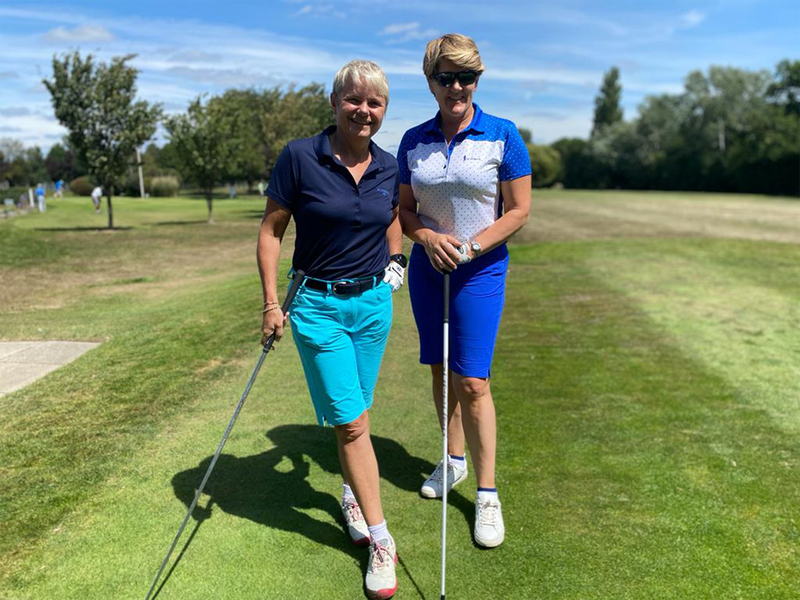
Chapter Eight
London 2012...
“I was 41 and I had been doing my thing for a long time, what I call free ranging – i.e. I was presenting Grandstand on the move, walking around the paddock, which no one really did at the time because talkback was not trustworthy, you couldn’t hear your editor and most presenters liked to be anchored. Obviously, there is a huge risk being out and about, as everything can go wrong, but I was too young and naïve to really know that! Why wouldn’t I do what I had always done as a reporter and do it all on the move?
“Then London 2012 came. It was fabulous and so exciting, and nothing will ever top it in my working life, ever. I was working for the BBC but I wasn’t one of the main presenters, nor did I present the evening show – Gary Lineker was doing that. I was the reporter at the swimming events, then did some equestrian sports, the open water swimming, the women’s boxing (when Nicola Adams won her gold medal). Basically, I was all over the place. The key though is to get someone hugely generous with you, a good pundit who is witty and will answer any question – people like Mark Foster, Chris Hoy, Willie Carson and Rebecca Adlington.
“Mark and I were doing the swimming when Chad Le Clos beat Michael Phelps in the butterfly – which nobody thought would happen as Phelps had been unbeaten for something like ten years – and we all thought what do we do now? I could see this man celebrating and said to Mark, ‘That’s obviously Chad’s dad and we need to get him on.’ I sent Mark off, bless him, and even though the editor said we didn’t have time to speak to him I went ahead anyway. In fact, I did very little in the interview, but I did a lot to get it on air! I just held the microphone and let Bert Le Clos talk – he was so effusive and gorgeous, and he gave everyone a reason to care about this swimming race. No one had ever heard of Chad and suddenly the public felt connected to him and they were crying and laughing; it really made people feel like they were there and that is what I was trying to do and what I always try to do. It was all about the event – not about me – and how do I make you care about this race when you’ve probably never heard of any of these swimmers and you hardly see their faces as they are in the water? How do I make you interested and keep you watching? And how do I tell the story afterwards? I really love that challenge. Of course, it was all amazing but I had no idea how it was going down because I was so locked into what I was prepping for and what I was doing. Chris Evans shouted out to me, ‘Oh my god, Clare, you’re having the most amazing Olympics, everyone loves you,’ and that was the first time it really sank in.
“I went on to do the Paralympics for Channel 4, which I really care about and has a deep impact on the public, I think. I just kept going and I didn’t want any of it to end. It was so lovely and everyone was so positive about sport, they really knew stuff, and they’d watch and really care.”
Chapter Nine
…And Beyond
“After that, I went from being a fairly well-regarded sports presenter to being offered everything, literally every single programme. One of the controllers said to me, ‘Every proposal that comes in has your name on it,’ even things I didn’t know about. Suddenly you are flavour of the month and that is a really weird thing to happen to you when you’ve been doing the job for a good 15 years. I had been very ill in 2009 and I was very aware that you don’t get that many chances. I wanted to do lots of different things, have experiences that would be with me for ever. I did some fantastic things, like Operation Wild, a TV programme that took me around the world to places like Borneo and Japan to see pioneering vets use cutting-edge techniques to save the lives of animals.
“The biggest thing for me was that BT Sport started and they offered me a chat show which I did for about four or five years. It was great – I had Lewis Hamilton and Tom Daley on the same show, and I would always have a sportswoman on the sofa too. That hadn’t really happened before; sportswomen didn’t really have high profiles, a few did but had to do things like fashion shoots to get there. They weren’t there because they were high achievers and had interesting things to say. I present a lot of women’s sport and that was I commitment I made to myself at the time – to use the opportunity to promote women’s sport for however long I remained in favour. I wanted BT to commit to this too, which they did.”
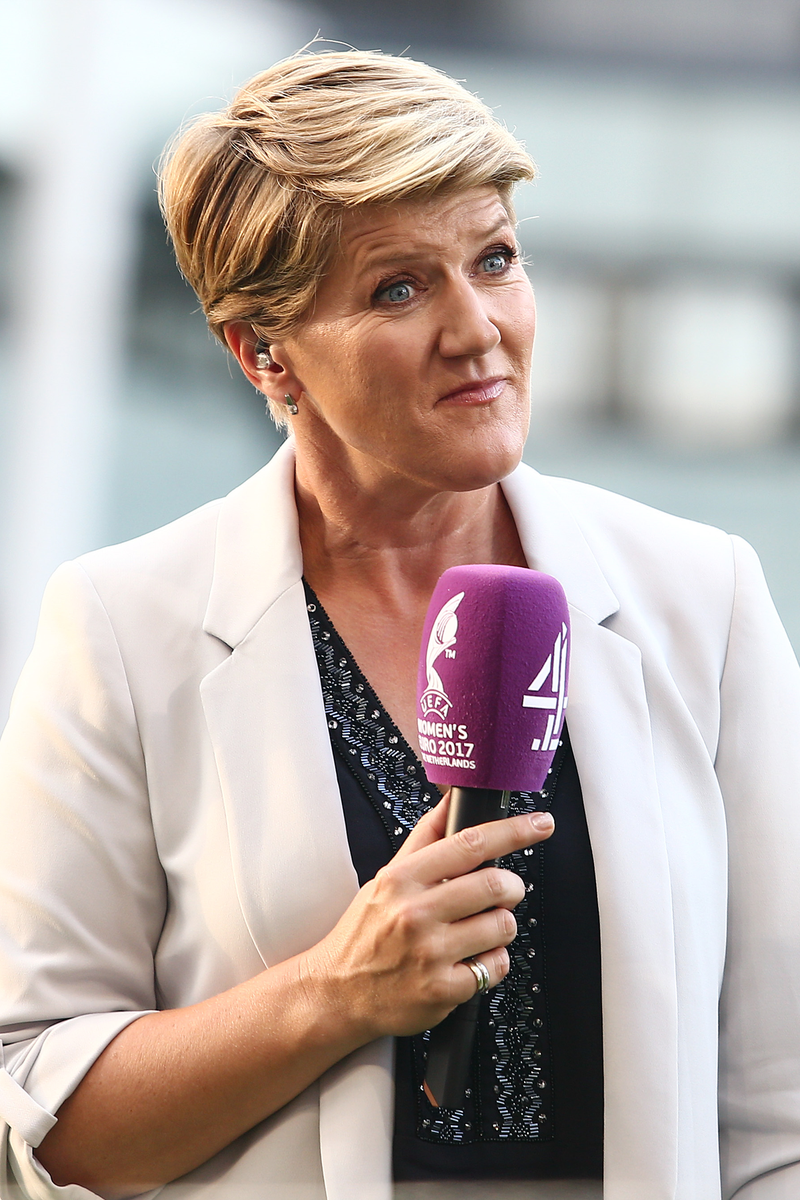
Chapter Ten
Making Choices
“I spent my 30s and 40s thinking I’ve got to keep going, otherwise I’ll never be offered anything else. Now, with a bit more financial security, I know I don’t need to work all the time. I think lockdown taught me a lot too, and I’m very comfortable and happy doing really good stuff and not needing to fill every single day. Alice and I play a lot of golf and that certainly helps to fill the time if you’re not working.
“We love travelling and enjoy cruising, which might make people laugh, but you get to see a lot of different places – sailing in and out of Lisbon is one of the most jaw-dropping and impressive experiences, as is leaving San Francisco under the Golden Gate bridge, and arriving into Auckland was pretty cool too. I walk a lot and am a very keen rambler, and what I like about travelling by sea is the same as what I like about walking – you get a real understanding of the scale of things and distances.”
The Next Chapter
Wimbledon
“Wimbledon starts next week. I present the evening highlights programme, which is quite tricky as you never really know when play is going to finish. I’ve always been keen on tennis, and I love it as a spectator sport because you get so close to the players – I always think the test of a good sport to watch on television is how good it looks in slow motion. I’m looking forward to seeing how 19-year-old Carlos Alcaraz does – he beat Nadal, Djokovic and Zverev to win the Madrid Open last month.”
DISCLAIMER: We endeavour to always credit the correct original source of every image we use. If you think a credit may be incorrect, please contact us at info@sheerluxe.com.

